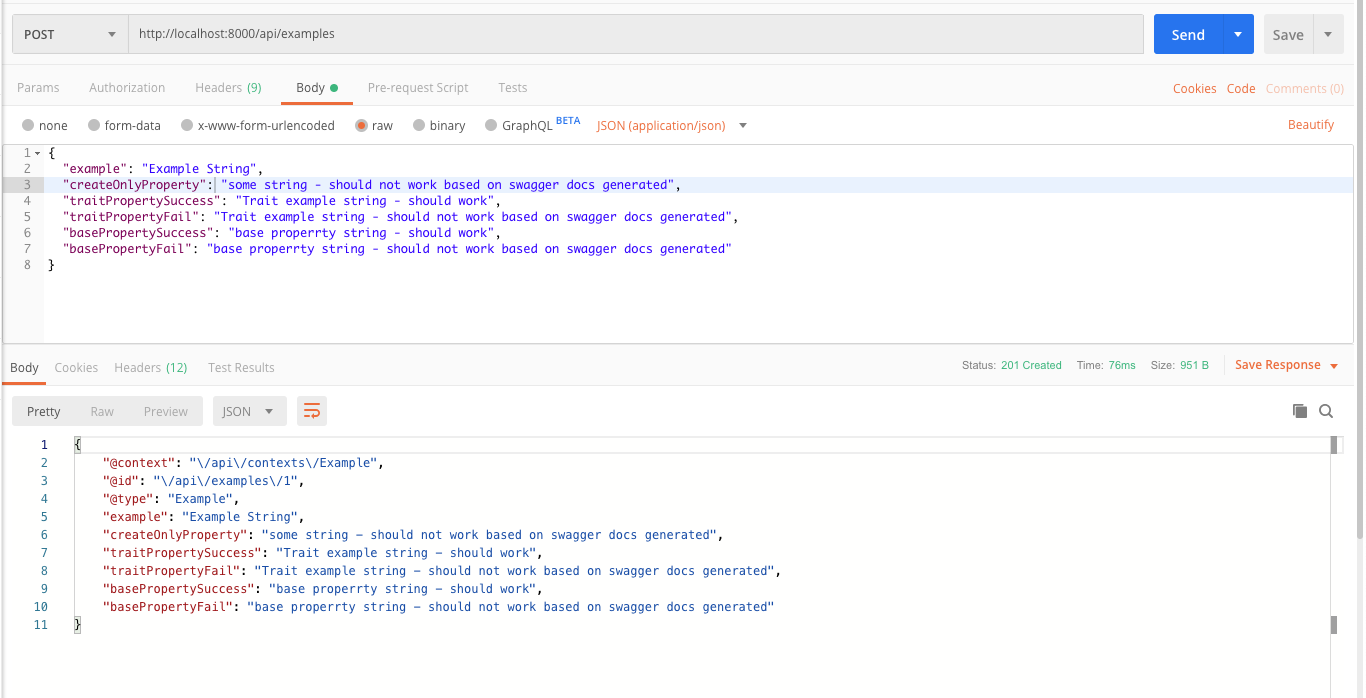I've just checked and I'm having the same issue when trying to use a BaseEntityTrait with the same code as BaseEntity to try and work around the inheritance. Using the trait, I also need to remove the resource level serialization groups in order to get the $someProperty, with the serialization group of "create" to be respected.




I've noticed the documentation indicates that when serialization groups are specified at an operation level they should take precedence over the configuration specified at the resource level. This makes sense and seems to work fine when your entity does not extend from another class.
Example of what works: Notice that I have resource level normalizationContext and denormalizationContext defined on the CheeseListing entity. But, I also have the operation POST set up to use the serialization group of "create" and have applied that group to the $description property. This works as expected and the Swagger docs generate everything correctly (model section has a "cheeses-create" definition and the $description property is defined).
But, if I have my CheeseListing extend BaseEntity and the BaseEntity class contains a property that has a serialization group of "create", it does not show up if I keep my CheeseListing as defined above. BUT if I remove the resource level normalizationContext and denormalizationContext lines it shows up then... so not sure why it is completely being ignored.
The 2 lines I needed to remove to get the "create" serialization group to show up for the POST operation. But... with removing those, I now lose my Read and Write definitions and groups.
My BaseEntity.php file:
Any idea why I need to remove the resource level normalization and denormalization contexts to get groups in parent classes to show up?